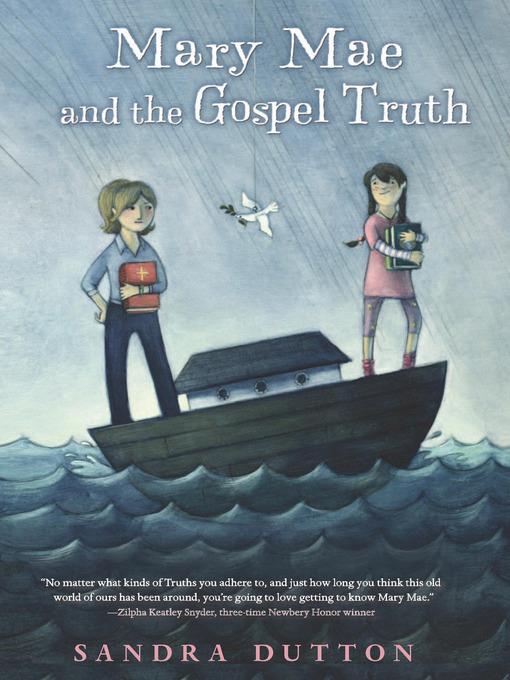
Mary Mae and the Gospel Truth
فرمت کتاب
ebook
تاریخ انتشار
2013
Lexile Score
680
Reading Level
2-3
ATOS
4.1
Interest Level
4-8(MG)
نویسنده
Sandra Duttonناشر
HMH Booksشابک
9780547488271
کتاب های مرتبط
- اطلاعات
- نقد و بررسی
- دیدگاه کاربران
نقد و بررسی

Starred review from June 14, 2010
Mary Mae’s inquiring mind and keen observational skills get affirmation from her fifth-grade teacher but distress her creationist mother. Refusing to take her pastor’s advice to “trust the Bible scholars,” Mary Mae ends up with more and more questions as she tries to reconcile the Bible’s account of creation with what she’s learning in class about fossils and the age of the earth. Eventually, Mary Mae’s questioning leads her frustrated mother to yank her out of school to provide Bible-based homeschooling. “Why can’t you be my sweet little Mary Mae?” she asks. “It’s all so easy if you just believe what the Bible says and don’t go asking no questions.” Dutton (Dear Miss Perfect) sensitively navigates the sticky debate between creationism and evolution both through the young narrator’s delightful curiosity and honest questions, and through the various responses she receives from numerous caring adults, who all strive to provide truthful guidance. Concluding with a pastor’s affirmation that faithful people can have different opinions, it’s an honest portrayal that respects both viewpoints, as well as those that slot somewhere in between. Ages 8–12.

July 1, 2010
Gr 5–7—-ary Mae has always accepted the conservative, religious teachings of her family, including a very literal interpretation of the Bible. However, the arrival of her granny and a new teacher cause the 10-year-old to question everything she has ever known. When Miss Sizemore starts to teach the class about fossils, Mary Mae begins asking questions of the adults in her life, and her mother decides it would be better for Mary Mae to be homeschooled. At no point in the story does the child ever question the existence of God; she only sees God doing things in a different way. While her mother chooses to see science as an enemy to her beliefs, Mary Mae sees it as an extension of God's work. Miss Sizemore opens her up to a new world, where inquisitiveness is not only valued, but is key. Here the relationship with Granny is also crucial to the story; she is always there to listen to Mary Mae and does not discourage her. This simple act of support gives the child the confidence she needs to not give up her quest for knowledge. This is a great story with valuable lessons. Told in an Appalachian dialect, it not only depicts real feelings about religion, but also shows the people behind them as good. It is both a lovely coming-of-age story and a lesson in respect between religion and science.—"Kerry Roeder, The Brearley School, New York City"
Copyright 2010 School Library Journal, LLC Used with permission.

June 1, 2010
Grades 4-6 Ten-year-old Mary Mae has a thing about fossils. She is especially interested in trilobites, and she is excited when she finds one in the fossil-rich area of Ohio where she lives. She and Granny even write a song (Trilobite crab, / he dont need no taxicab). Mary Mae likes church too, but she has almost as many questions about religion as she does about fossils. Her mother, however, has no questions about the Bible at all, and when she discovers Mary Mae is learning things about prehistoric times that contradict scripture, she decides to homeschool her. The tug between science and religion is always interesting, but here the outcome seems, well, preordained. Mama, a bit too simplistic a character throughout, has an epiphany when she visits a fossil site; confirmation by a pastor that fossils are all right in the eyes of the Lord leads to the storys quick conclusion. But children for whom this is an issue will be sympathetic, and those whove not thought about the implications of science on religion might be intrigued.(Reprinted with permission of Booklist, copyright 2010, American Library Association.)

























دیدگاه کاربران